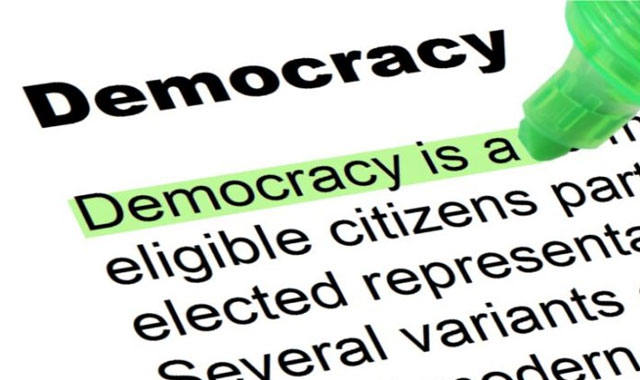
Most people across the developed world still get most of their news via television — and traditional news brands, produced by journalists, still top the rankings for the most read news on the Internet. But a growing number of people have stopped turning on the TV, buying a paper or even visiting a news website.
They are reading their news — filtered for them by more assiduous friends — on their Facebook feeds or having it provided for them by organisations or politicians that are paying Facebook for their attention. Researchers have already noted a growing division between “news junkies” who read widely (but usually only from sources they agree with) and a growing band of “news avoiders” who are opting out of news that seems aggressively polarised.
Two recent elections give some idea of what is happening to news. In the summer of 2015, Jeremy Corbyn stunned seasoned political commentators when he sailed into the leadership of the British Labour Party. Similarly, in the US election race, outsider Bernie Sanders is surging in the polls. Nearly 60% of Corbyn supporters use social media as their main source of news (the average is 32%). An analysis by US Uncut found that Sanders received 42% of Facebook mentions compared to 13% for Clinton.
For their supporters, social media platforms represent a radical new dawn in which conservative old media will give way to myriad new ideas. Among the politically aligned and interested, social media provides a mobilising force that builds passionate partisanship. But they don’t realise that they are living in a bubble and barely registering in the minds of people who either don’t share their viewpoint or (and this is more important) are not particularly interested in politics. Sanders garnered less than a third of the press attention that Clinton attracted. Those voters who don’t share the social media profile of his supporters may never hear their arguments. Viral news needs the bloodstream of broader media to carry it from one silo to another.
Growing ‘news gap’
Polarisation of news is commonplace in southern Europe, where it has always been politically aligned. But in northern Europe, television has, since its inception, been regulated (Daniel Hallin and Paolo Mancini 2004, Comparing Media Systems) in order to ensure that people encounter public information and that it is relatively politically neutral. The US shared this approach until 1987 when the “fairness doctrine” was repealed and the stage was set for the rise of polarised news.
Research by Norwegian academic Toril Aalberg and James Curran, a colleague of mine at Goldsmiths, found that deregulation had other effects: in the US, those with university degrees are far more likely to be knowledgeable about news events than those without university education — a problem that is not encountered in the Nordic countries where news is still regulated. The 2015 Reuters Digital News Report also found far greater political polarisation: two-thirds of the Fox News audience identify as right wing, while only 6% identify as left wing. In the UK there is virtually no political polarisation across channels.

In those countries that retained their television regulation and more neutral forms of television news broadcasts, what has been termed the “news gap” between informed and uninformed publics has been held at bay — but that may last only as long as television remains the major source of news for the bulk of the population. As the youngest audiences, absorbed by their portable screens, turn away from TV news selected and ranked by editors, “me” journalism — provided according to its audiences’ pre-determined requirements — is on the rise.
Rise of the “Daily Me”
In the summer of 2011, The Guardian in the UK was attracting 35% of its audience via searches from Google and only 2% from social media. Most of the rest came direct to its website. Then The Guardian signed up to the Facebook news app and, six months later, The Monday Note blog announced: “This week’s most stunning statistic: in February, Facebook drove more traffic to the Guardian website than Google did.”
The Guardian’s traffic soared by more than 60% as readers signed up to the app and everything they read was automatically posted into their Facebook feed where it might be seen by their friends, commented on and passed on to others. Since the broad assumption was that numbers would drive ads and ads would increase digital revenue, The Guardian was delighted and many other publishers jumped in with Facebook to share this new source of distribution.
Three years later, only 6% of the news stories being read by app subscribers actually get shared and it is Facebook that determines what they will be — based on its own data of individual users’ “likes”.
A study by US researcher Pablo J Bocskowski, Eugenia Mitchelstein and Martin Walter in 2010 found that most people click on stories about sports, entertainment, crime and weather. My own research suggests that most of what is shared follows this pattern and that shares are also gender biased. Young women tend to see news that evokes empathy (crime, health, social justice), while young men are more likely to talk about technology, gaming and sport. Those who are interested in politics share only what interests (or angers them) them and are unlikely to see the counter arguments.
This effect is exacerbated on Twitter, where polarisation is rife. Analysis of the events in Ferguson in the US in 2015 and how they were discussed on social media shows just how little Twitter has helped people to listen to the views of others.
Facebook now dominates the news being read by young people and its domination is not just national — it is global. It may well be time to think about what societies need to do to counter this growing, global news monopoly. Facebook may not be in the business of news production but its impact on news is already profound and not always positive.![]()
- Angela Phillips is professor, Goldsmiths, University of London
- This article was originally published on The Conversation

